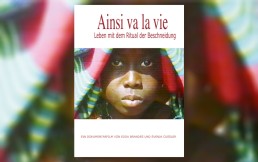We accompany three people, two women and one man, in their private and public life in Bamako, the capital of Mali. All three have very different experiences with and opinions about the practice of female excision. Both women have been excised. While Djeneba has her girls excised and gives several “good” reasons for this from her point of view, Fatou still suffers from the consequences of this intervention, which she experienced at the age of about 8 years and fights passionately against it. Salia, anthropologist at the National Museum in Bamako, is caught between all chairs: His Western education makes him reject this practice; however, if he sees himself in opposition to his older brother in the village, who has the authority to issue directives, he cannot – according to him – do anything against these authorities, if he does not want to cause a break with his family of origin.
The film provides insights into the everyday life of all three protagonists and grants each of them a high degree of respect and the inviolability of their dignity. “Ainsi va la vie” is a poetic film that arouses consternation and leaves room for dealing with the plight of the people affected.

